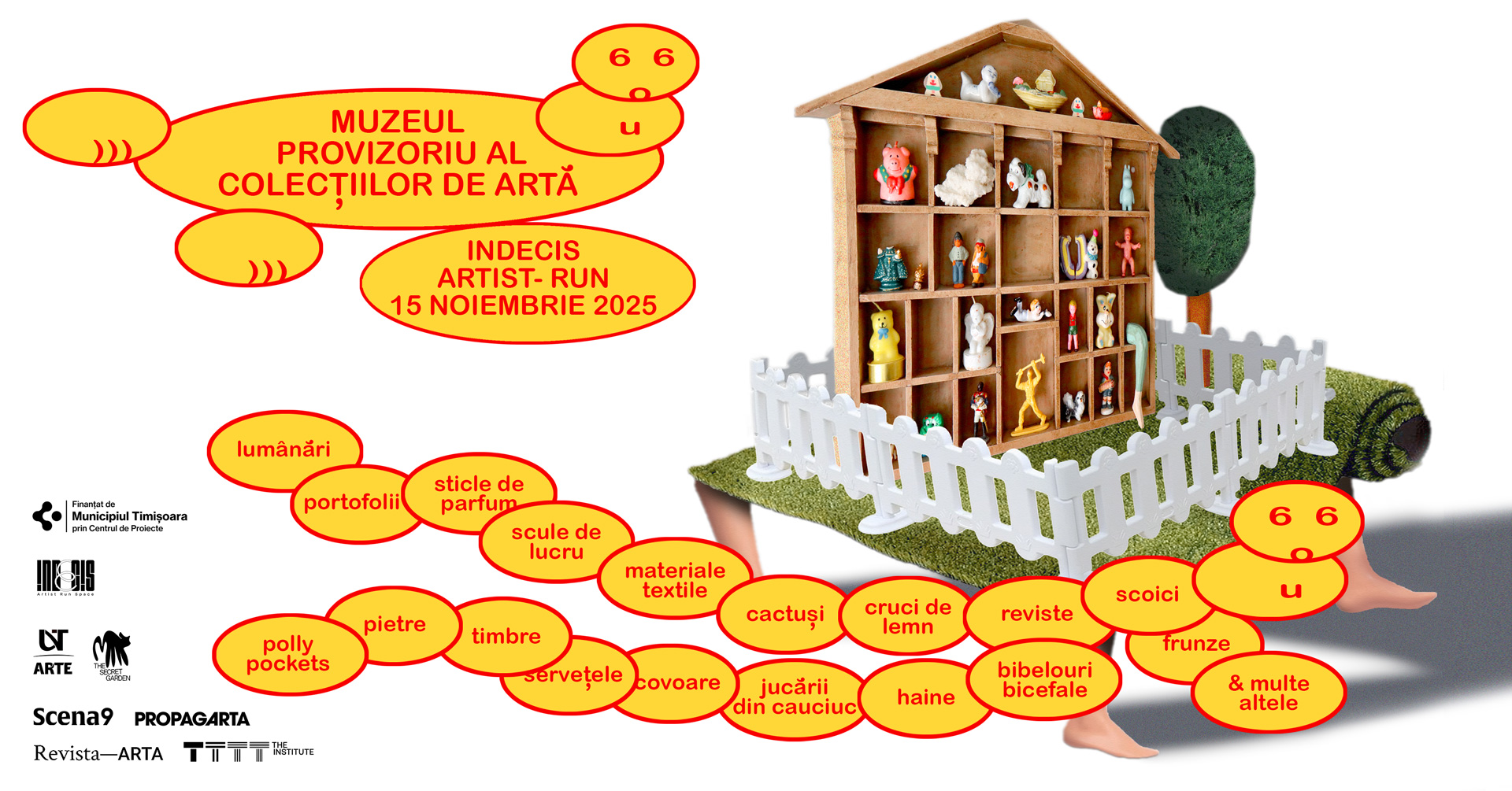15 October 2025, Bastion 3, Timișoara
Opening: Saturday, 6:00 PM
There are many statistics that keep emerging, aiming to outline the magnitude of contemporary human consumption habits—habits that translate into multiple materialities, more or less visible: global goods consumption increased by 23.3% between 2015 and 2022, reaching 14.2 tonnes per capita. In Romania, in 2022, we reached a consumption of 28.81 tonnes per capita, according to a statistic by the United Nations Environment Programme. In the same vein, the statistic published an analysis stating that in 2024, the global volume of data created, downloaded, copied, and consumed is 149 zettabytes (one zettabyte equals about 1 trillion gigabytes)—data which, in turn, consume other resources: economic, physical, ecological, invisible, and hard to contain.
There’s nothing new in all this; rather, we’re trying to understand the frameworks in which consumption takes place. It is said that humans have an irrational tendency to collect things, of any kind: we’re talking about digital data, clothes, documents, toys, light bulbs, tissues, printouts, pots and pans, films, books, packaging, furniture, socks, bottles, stamps, spoons, blankets, towels, coins, boxes, recipes, images, postcards, paper, plants, jars—full and/or empty—and so on. The Provisional Museum of Art Collections appears (and just as suddenly disappears) as an exercise in inventorying the things we gather and that, at the same time, give us meaning. It tries to map the boundaries within which someone’s attraction to objects arises and manifests. It’s also a museographic exercise—not expressly aiming to destabilize the logic of the museum collection, but rather to address a few gaps in the local context, both in terms of museum institutions committed to making heritage and community history more accessible (the main headquarters of the National Museum of Banat has been closed since 2007, replaced by a wing of the Bastion that hosts a few temporary exhibitions), and in terms of more general attitudes toward access to culture and democratic participation in contemporary cultural discourses.
What is a collection without the collector? How is a collection accumulated, and how overwhelming can it become? How can a collection, regardless of its nature, generate knowledge? Boris Groys says we are what we collect—not just as a poetic observation, but also to emphasize that the way we can understand ourselves, the communities we’re part of, and our relationship with modernity can largely be understood only through the things we surround ourselves with, as a reaction to the destabilization of previous power structures, such as the monarchy or the church. The museum, after all, is a relatively recent invention—a place traditionally associated with something outdated, no longer actively participating in the spheres of life. The Provisional Museum also emerges as an exercise in questioning the dynamics of individual-object-time—a way to intuit and explore how we might perform our identities, how we might reconsider what is particular to us, in the absence of ultranationalist visions and apathy toward the forms of life around us.
Thus, the provisional inventory of the already provisional museum does not aim for more than to engage in initiating a dialogue about the objects that surround us, about the stories we tell and could tell—in the absence of clear categories, labels, and overly restrictive economic and social dynamics—without ever intending to surpass its condition of provisionality.
Mediation Program
🕒 Visiting hours:
Wednesday–Friday: 16:00–19:00
Saturday: 11:00–16:00
👋 The Provisional Museum of Art Collections is now open, the first collections have already entered the inventory, and the open call remains open until 25 January 2026. You can submit your own collection here.
👋 Thursday, 20 November, 19:00 – On hoarding, collecting and the stories behind objects – with Mircea Dragu. More details here
👋 Saturday, 22 November, 11:00 – Gobleniada: a slow Saturday stitching session. More details here
The exhibition is part of the project Composting past futures – frameworks for artist-run practices, funded by the Municipality of Timișoara through the Project Center and co-funded by Indecis artist-run.
Partners: Faculty of Arts and Design – UVT, The Secret Garden Books
Media partners: Revista ARTA, The Institute, Scena9, Propagarta
Graphic design: Lucian Barbu
Event organized in partnership with the Municipality of Timișoara, through the Project Center. #spacesforcommunity
